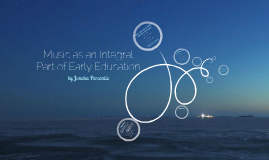Graduation Project Presentation
Transcript: Physicist Why Choose a career in physics? I have: --A passion for mathematics --An inexplicable drive to understand how the universe works --An ability to imagine systems under many different parameters The million dollar questions: What is Physics, and what does a Physicist do? What is the demand and how did it all begin? Then, Physics becomes more of a professional career... Newton's Accomplishments: --Essentially turned physics into a profession --Wrote his immortal Law of Gravitation --Invented Calculus --Wrote several grounbreaking papers on optics ............ Physics reamined about the same for the next 300 years. There was slight growth, but no real advancements were made until.... Now, Physics evolved unlike it had in 3 centuries, since Newton. It is easy to see that discoveries within the science bring demand for people who can work with and refine a brilliant theory. You almost never know when a breakthrough will happen. Today's growth is based on breakthroughs that occurred half a century ago Growth Rates From 2006-16, careers in physics grow 14-16% nationally, with 6900 new positions available. In PA, physics grows 10% and 120 new positions will be available. More Statistics 52% of physicists have a Ph.D. (or multiple) or a Professional degree. Average PA physicist makes around $106,390 The national average is $112,230 Job Shadow I was given the opprotunity, on April 18, interview and observe the duties of a professional physicist at Drexel University. I shadowed Robert Gilmore, a research physicist and Professor at Drexel. He was a brilliant man, and a very serious researcher who has held positions at Trinity College Dublin and the University of Paris. After preliminary questions (provided by the Twin Valley PPD class), i asked him several questions not only about physics as a career, but about physicists and physics as well. I observed him doing calculations to support a paper he had recently written, the abstract of which is: There is at present a doubly-discrete classication for strange attractors of low dimension, dL < 3. A branched manifold describes the stretching and squeezing processes that generate the strange attractor, and a basis set of orbits describes the complete set of unstable periodic orbits in the attractor. To this we add a third discrete classication level. Strange attractors are organized by the boundary of an open set surrounding their branched manifold. The boundary is a torus with g holes that is dressed by a surface flow with 2(g-1) singular points. All known strange attractors in R3 are classied by genus, g, and flow type. In layman's terms, he works in chaos: the study of systems falling out of order. Gilmore tries to find order within chaos. From Gilmore, i gained the most valuable information from any of my research for becoming a physicist. Most importantly, however, i was given the gift of the time and patience of a brilliant professional physicist. I will never forget my experience. To Summarize: Careers in physics are enlightening and show extreme promise. In PA, it will grow about 10%, still higher than average. The more scientific discoveries, the faster physics grows not only as a science, but as a career as well. The average salaries in PA and Nationally are $106,390 and $112,230, respectively. Nationally, physics will grow about 15% over 2006-16, which is higher than average. If, then, it is true that the axiomatic basis of theoretical physics cannot be extracted from experience but must be freely invented, can we ever hope to find the right way? I answer without hesitation that there is, in my opinion, a right way, and that we are capable of finding it. I hold it true that pure thought can grasp reality, as the ancients dreamed. --Albert Einstein, 1954. Democritus, 400 BC

















